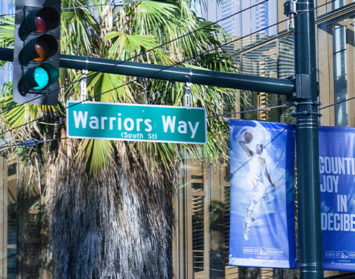This won’t be the first time this column has had occasion to discuss the traditional role of the commercial real estate broker in the office leasing market. However, what’s been said before bears repeating, given the myriad scenarios in which office space users allow themselves to be improperly represented in leasing negotiations.
Here we have successful business owners, for the most part, trying to negotiate the quarters where they will conduct their business without benefit of professional assistance. Sad to say, many of these tenants get more assistance on a Saturday morning at Costco when they ask an employee where the five-gallon cans of soy sauce are than they do on a business day when they are in negotiations for a major business expense.
These same tenants don’t hesitate for a moment to consult an attorney for even the most minor transaction, an employment service to find permanent and temporary employees and even a professional indoor plant specialist to care for the office flora. Yet when it comes to getting help in handling a major, long-term financial commitment such as leasing office space, they either try to go it alone or, just as bad, they delude themselves into thinking the landlord’s broker can represent them as well. If tenants think hiring a bad receptionist or having a dead ficus plant in the lobby are bad outcomes, try an over-priced lease with lousy benefits and no flexibility on for size.
Now, here’s where the letters to the editor, nasty Post-Its on my car windshield and e-mails begin. No man nor woman can serve two masters — in this case, both landlord and tenant — in a negotiation where both parties have differing and even conflicting interests and outcomes in mind.
I hasten to point out that it is not illegal — nor is it even a breach of professional ethics — for a broker to represent both sides in a real estate transaction. The proviso is that the broker must fairly represent both parties, which sounds good in theory, but is extremely difficult to achieve.
Let’s take a look at the industry landscape. The traditional commercial real estate industry is created by and for those who develop and own commercial real estate — in short, landlords. The traditional commercial real estate brokerages have been created to serve the parties — landlords — who created the industry. Their chief role is to entice, negotiate with and place tenants in the landlords’ buildings, much the same way an auto salesman’s job is to move cars off his dealer’s lot at the highest price he can get for the vehicle. He doesn’t get the “Salesperson of the Month” award for giving really good deals to the buyer, at the expense of the dealer for whom he works.
The industry’s career pattern further demonstrates the unalterable connection between landlord and traditional commercial brokers. Many, if not most, brokers who have made a killing representing landlords become developers and landlords themselves who, in turn, hire their old broker pals as their agents. That’s perfectly OK legally and just fine for those two parties, but it should be evident to any impartial observer that the tenant isn’t part of the fun and games here. The only role the tenant has is to sign on the dotted line and pay the rent.
However, landlord brokers don’t have to morph into developers and landlords to skim the cream off the top of the commercial real estate business. Consider the classic “home run” scenario in which the broker represents a party in the purchase of vacant land for an office building and then comes back to lease up the building for that developer who is now the building’s landlord. In the course of leasing the building, the landlord’s broker also is trying to represent tenants as equal parties. Again, it’s perfectly legal, but, in my opinion and that of others with any degree of common sense, it’s questionable for all the reasons I’ve whined about earlier here. The cold hard fact is that this scenario is the “holy grail” in commercial real estate, coveted by all who plea their allegiance to developers and landlords.
Traditional commercial brokers are very competent in representing the interests of their landlord clients. They just have no business trying to straddle the negotiations table to try to represent the other party to the transaction, the tenant, thereby “double-ending” the deal to pick up a larger commission. As self-serving as this may seem, that’s why my company colleagues and I are in business — to give tenants equal representation on their side of the bargaining table.
To be fair, the problem doesn’t begin or end with the brokers themselves who engage in the dual representation practice. They’re merely taking part in an age-old, allowable practice that hampers competition and, to be frank, has no place in a healthy competitive environment where fairness to all concerned needs to be observed.
This isn’t the first time I’ve broached this topic. I have the feeling it won’t be the last, either.
Jason Hughes is founder of Hughes Marino, an award-winning commercial real estate company with offices across the nation. A pioneer in the field of tenant representation, Jason has exclusively represented tenants and buyers for more than 30 years. Contact Jason at 1-844-662-6635 or jason@hughesmarino.com to learn more.









